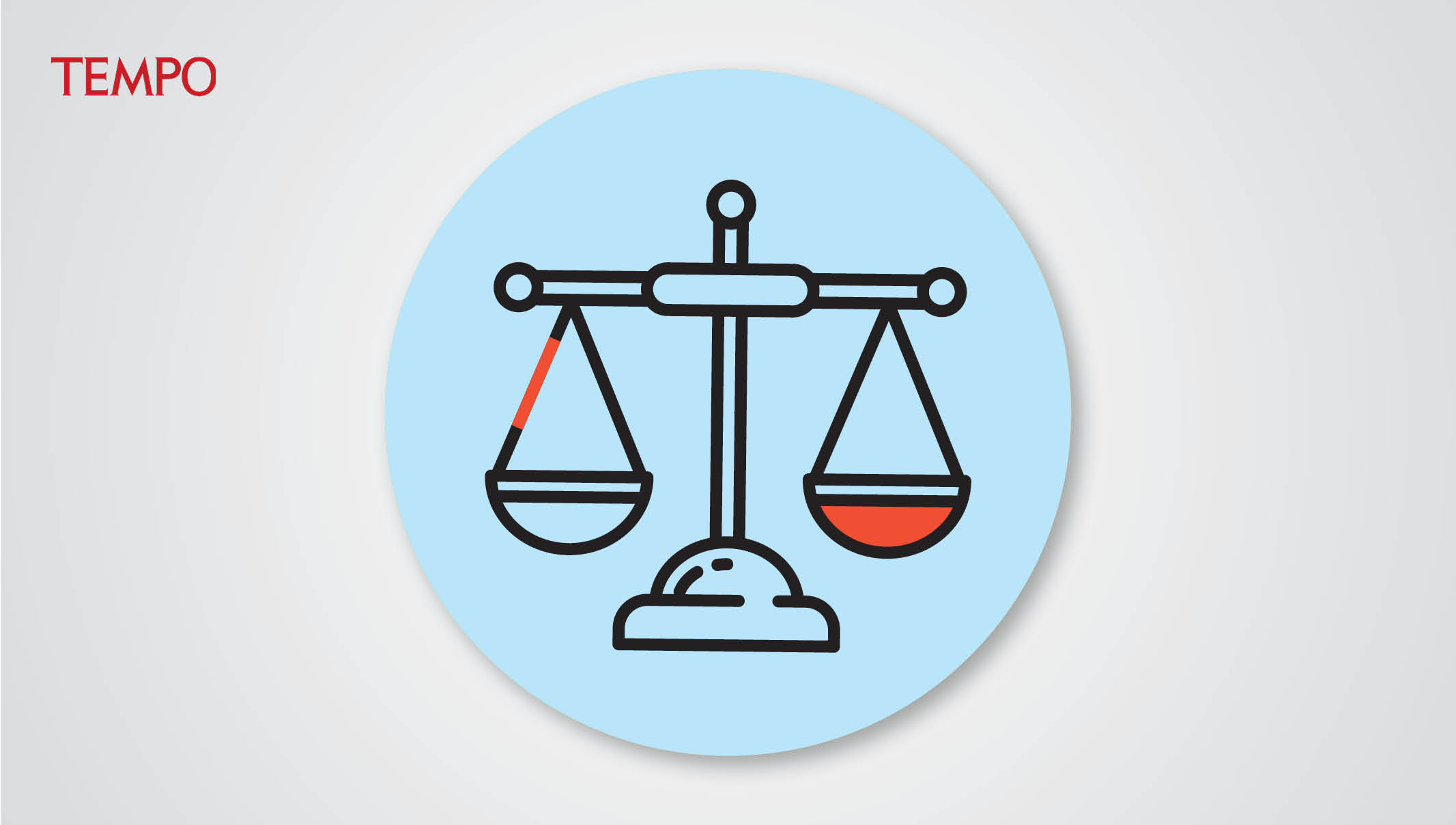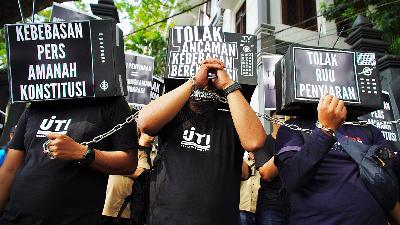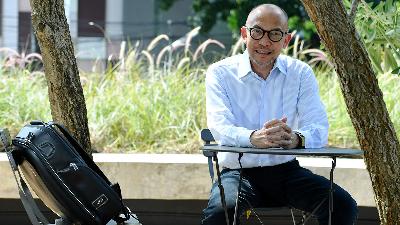The Organized Corruption of Syahrul Yasin Limpo
Monday, May 20, 2024
Syahrul Yasin Limpo is alleged to have taken money from Agriculture Ministry officials. Those paying the money must also be held responsible.
arsip tempo : 174490792615.

THE money laundering case that Syahrul Yasin Limpo is caught up in is an example of the chronic level of corruption in the Agriculture Ministry. Syahrul is alleged to have used the money he received to pay installments for a car for one of his children and for beauty treatment for his wife. Like a king, the suspect received organized ‘tributes.’ Almost every first echelon official in the ministry made contributions for Syahrul.
Syahrul Yasin Limpo’s charges at the Jakarta Corruption Court show that almost every directorate and unit at the Agriculture Ministry paid in funds from 2020 to 2023. The total amounts to Rp44.5 billion. Giving evidence in court, officials from echelon to director-general level testified that this money came from cash contributions from staff in every directorate. These contributions ranged from Rp50 million to Rp4.2 billion.
All of this money was collected by Syahrul’s right hand men, former Secretary-General Kasdi Subagyono and former Agricultural Equipment and Machinery Director Muhammad Hatta. Prosecutors allege that Syahrul gave the orders to these two subordinates. He had various needs, ranging from hiring an airplane to travel outside the capital to renovations to the bedroom of one of his children. It also came to light that Syahrul collected money to pay a dangdut singer.
Kasdi and Hatta have been named suspects, but none of the top echelon officials have been touched. The director-generals and other senior officials who also paid money should be questioned. They are not victims of extortion because they knowingly paid these tributes to the minister, and the money that was paid in came from state funds that should have been used for programs for the public.
It is fair to suspect that these officials paid money in order to preserve their jobs. This is why they should also take responsibility, because they embezzled state funds. This corruption between superiors and subordinates must be ended by punishing all of them to provide a lesson for other government institutions. If it is allowed to continue, this habit of paying bribes to the boss for the sake of job security will become a vicious cycle that will continue into the future.
The use of the Money Laundering Law is aimed at uncovering corruption from top to bottom. The Corruption Eradication Commission (KPK), which is handling this case, should also go after Syahrul’s family members because they also received contributions. Syahrul’s daughter, for example, who brazenly asked for money from her father’s subordinates, should be punished to serve as an example for the family members of other officials.
Other information that emerges from the trial could be used by the KPK to further investigate the flows of money from Syahrul’s corruption. One request was for Rp12 billion to obtain an audit rating for the 2022 Agriculture Ministry budget from Supreme Audit Agency member Haerul Saleh. Although the eventual sum paid was only Rp5 billion, this information could be a starting point for investigating and prosecuting other people who received funds.
Corruption is not a solitary crime. This is true in the Syahrul case. Other information that needs to be followed up by law enforcers concerns funds paid to the National Democrat (NasDem) Party, of which Syahrul is a member. The NasDem Party admits it received Rp820 million, and Rp40 million meant for the victims of the earthquake in Cianjur, West Java. Using this evidence, the KPK could set an example as the first law enforcement institute with the courage to punish a political party for corruption.











